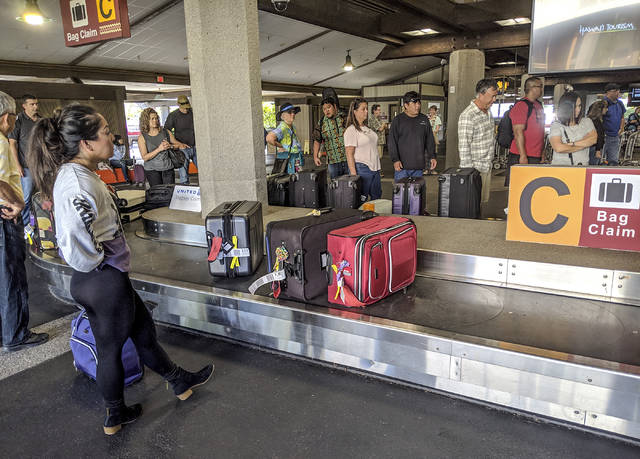HILO — A Hawaii airports corporation might finally be approaching takeoff as a bill that aims to improve the efficiency of the state’s airports passes through the Legislature.
Senate Bill 666 is the fourth iteration of a bill intended to streamline airport-related decisions by shifting authority over the state’s airports from the Department of Transportation to an independent airports corporation. Similar bills had been introduced and abandoned in the Legislature each year since 2016.
Now, however, SB 666 has passed its final committee in the state House of Representatives and now must only pass third reading in the House before a final vote.
The corporation would assume management of all seven of the state’s commercial airports. Centralizing responsibilities for the airports would allow decisions, particularly construction-related ones, to be made much more efficiently, proponents of the bill say.
The operational structure of the corporation would be determined by its board of directors, which would include at least one resident from each of the state’s counties. Board members, who would be appointed by the governor for four-year unpaid terms, would represent a wide cross-section of applicable disciplines, including hospitality, finance, aviation, law and Native Hawaiian culture and tradition.
An operating budget for the corporation is not proposed in the current bill, although it would appropriate $3 million from the state’s airport revenue fund to aid in the transition during fiscal year 2019-20.
Although few deadlines remain for the bill, it could still fail. Last year’s version of the bill was unexpectedly abandoned on the brink of passage as conference committees evidently failed to agree on a final draft of the bill.
Sen. Lorraine Inouye, who introduced each of the bills since 2016, said in 2018 that “politics” killed the bill last year — in particular, a dispute about how the bill would exempt the airport corporation from the state’s procurement code.
While SB 666 had a similar exemption to the procurement code in its first drafts, an amendment by the House Committee on Labor and Public Employment deleted that exemption in the most recent version of the bill. Last year’s bill also had that exemption deleted by its final committees.
However, Inouye said she and her co-introducers had been supportive of removing the procurement code exemption last year, so removing it again this year will not necessarily lead to the same disputes that scuttled the previous bill.
Inouye said it’s “hard to see where we are” regarding the bill, given that it could still change during conference committees.
“We’ll have to wait and see,” Inouye said, although she noted that if the bill passes, there will be a three-year transition period before the corporation can be established, during which “we can work out the kinks.”
Testimony before that committee earlier this month was broadly supportive. However, many parties who supported the bill’s intent opposed the exemption from the procurement code, on the grounds that it requires contractors to list their subcontractors, which offers a level of protection against businesses farming low-bid work to subcontractors for profit.
In addition to removing the procurement code exemption, the Labor Committee also added a requirement for all board members of the corporation to have procurement experience.
The next deadline for SB 666 is on April 11, when it must cross back to the state Senate.
Email Michael Brestovansky at mbrestovansky@hawaiitribune-herald.com.




